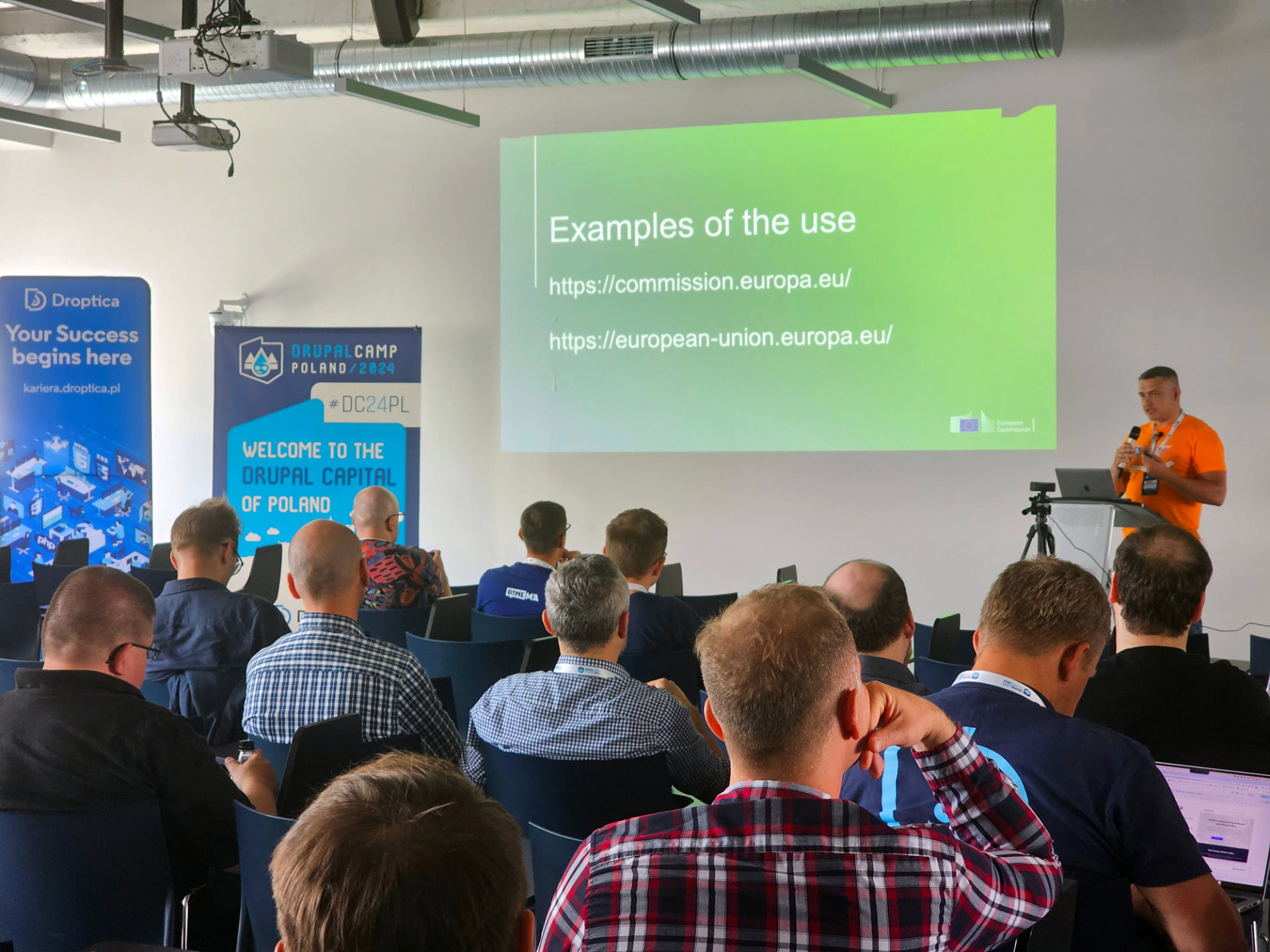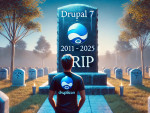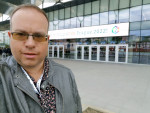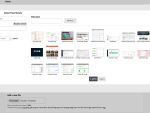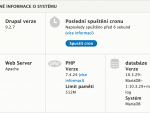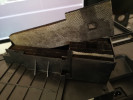It was the first time I visited Warsaw and I must say I was pleasantly surprised. As far as DrupalCamp is concerned, I like this smaller community format better than the big DrupalCon. Both for the more affordable price of participation and for the talks, which somehow show more how other colleagues work on web development than just celebrities of our programming microworld.
DrupalCamp Poland 2024 was no different.
- Venue: the SWPS University of Social Sciences and Humanities in Warsaw.
- Day: Saturday.
- Number of lecture bands: two.
- Languages: two.
- Participants: about 80? To be honest, I expected a bigger turnout, on the other hand I don't know much about the Polish community in Drupal.
Within the two lecture bands I chose mainly according to the topics. Some were in English, some in Polish. I was worried about how I would understand Polish, but it went quite smoothly.
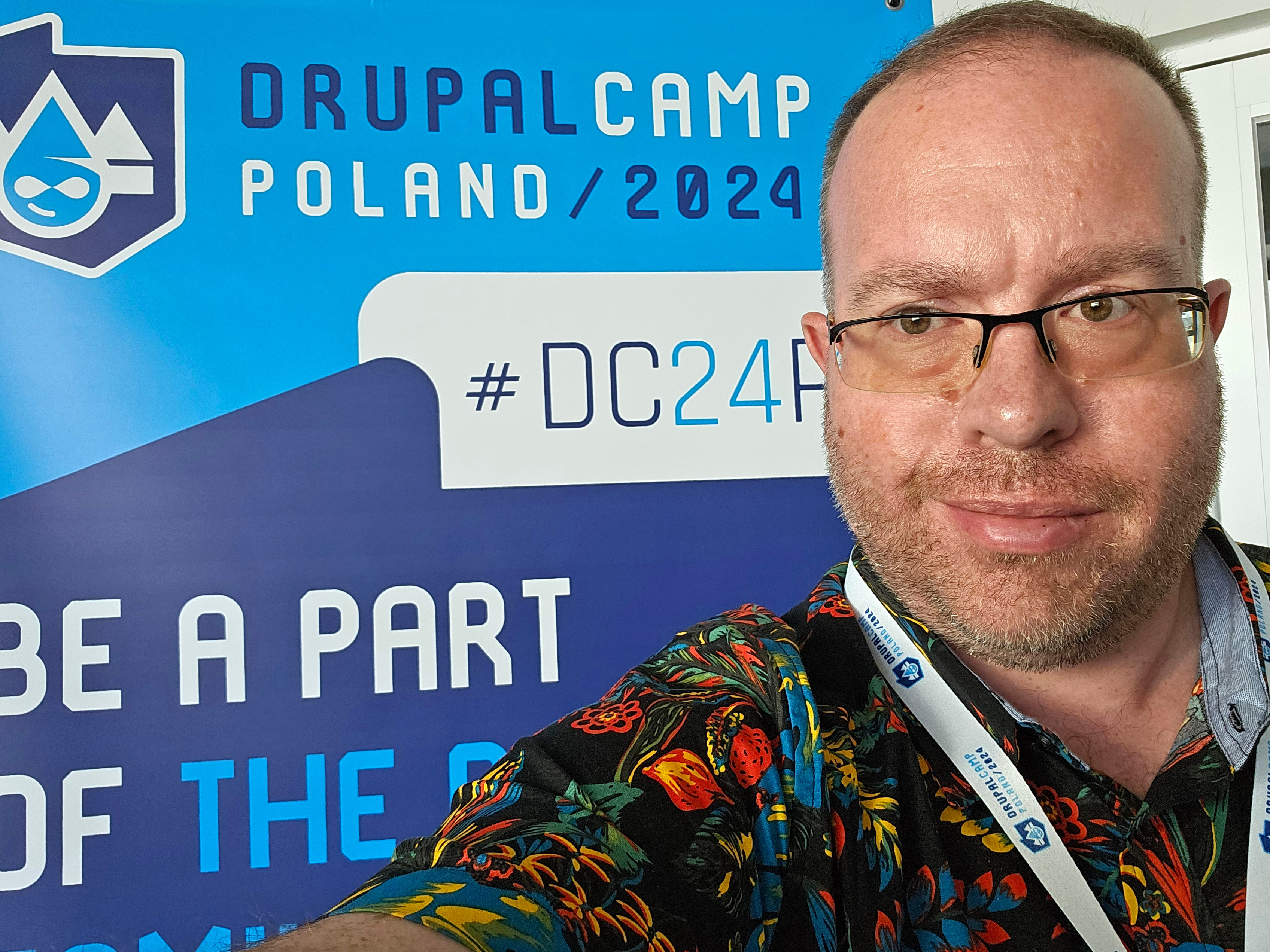
Organisation on a par
In the morning, we received a starter pack in the form of a classic canvas conference bag, a plush Druplicon, pens, leaflets and a T-shirt for those who had booked earlier. Refreshments were available throughout the day in the form of sweets, mineral water and coffee. Lunch was handled on each person's own terms during the break, I preferred to take a walk to a nearby park.
After a welcome and a few organizational words, we went down three flights of stairs to the ground floor for a group photo during the morning warm-up, and then back to the two lecture rooms.
Introduction to Content Security Policy
I started with a lecture on web security using CSP. Leszek Kledzik introduced us to the basics of Content Security Policy and a general description of what it does and how it works. We were shown the practical implications of this security. It was a bit more general, a question about a specific implementation in Drupal was answered by a person from the audience with a tip about the Security Kit module.
By the way, the upcoming Drupal 11 or 10.3 releases that were announced at DrupalCon in Portland were touched on very lightly or not at all. It's very fresh stuff.
Component connector
In the next slot, I was a bit hesitant between a lecture on Drupal Recipes or an introduction to the Component connector module. In the end I chose the second option. Oleksii Haidabura presented the Component connector module used to define and register components with YAML files. Definitely an interesting solution, but it doesn't fit my workflow at the moment.
Hint: I take away from the lecture a note about a module that I find much more interesting and need to look at in more detail: UI Patterns. It is used to build a library of components, but also to easily implement them in layouts, view modes or Views.
rE-medium: a Drupal-based solution for small publishers
Bartłomiej Swojak gave a rather inspiring talk at DrupalCamp. He told us how they were looking for a unified publishing platform within their publishing house. Until then, everyone was creating articles in Word and forwarding them to each other in different ways within the editorial wheel.
They had high demands but a limited budget. So Drupal offered a solution for which they ended up using a 200 module configuration covering a fairly advanced editorial and publishing process. They have three user roles and a bunch of editor roles, and they export articles as XML for InDesign to make it easier for them to prepare their print output. Similarly, they export data to generate E-Pub format.
Their system includes a paywall connected to PayU. They use a lot of structured data, they take a lot of inspiration from the big diaries abroad so they don't invent a solution that is already proven to work.
Their rE-medium is not yet a classic Drupal distribution, it lacks the appearance theme part, but they offer it for free to independent media.
Drupal LMS - new e-learning platform
Marcin Grabis came up with an interesting topic about Drupal LMS, but unfortunately for me it was rather poorly developed. Maybe it was due to my language barrier. Anyway, I would recommend using real titles instead of two-letter abbreviations in the application demos for a better impression.
How to sell web development in a rapidly changing market
This was a TOP lecture for me. Daiji Kimura, as an experienced marketer, presented the changes his company has faced in selling web development services in recent years. The market has changed due to pandemics, supply chain disruptions, military conflicts or inflation.
A number of easier-to-implement solutions than Drupal have emerged. Commercial headless CMS like StoryBlock, Contentful or Strapi. Then there are lowcode or nocode services like Webflow and Bubble.io. Not to mention SaaS products like Shopify, Wix and Squarespace capable of delivering websites and e-shops very quickly compared to Drupal-based development.
It was very inspiring, I wrote down the necessity to offer services that primarily answer clients' problems and do not operate primarily with technical solutions. The need to work properly with the passive (reduce price, adjust quality) and proactive side (tweak internal process, find less clients with higher budgets). Correctly formulate the corporate strategy, choose verticals (for example, sites for different industries), offer consultations first with a lower price than a complete project, strengthen the collaboration between sales and marketing.
Droptica where the speaker is from, is now a consulting and development company that offers consulting, workshops, UX/UI and support in addition to creating Drupal, Mautic, Sylius, Symfony and React engagements.
Three golden rules for effective collaboration
The lecture on collaboration across different disciplines was also very lively and successful. Rafał Żebrowski, as a programmer who has also worked in various positions as a consultant, gave a lot of his tips. Try to find the FUKO method and the S.M.A.R.T. method. Actively listen to others, i.e. paraphrase, have more questions, maintain eye contact.
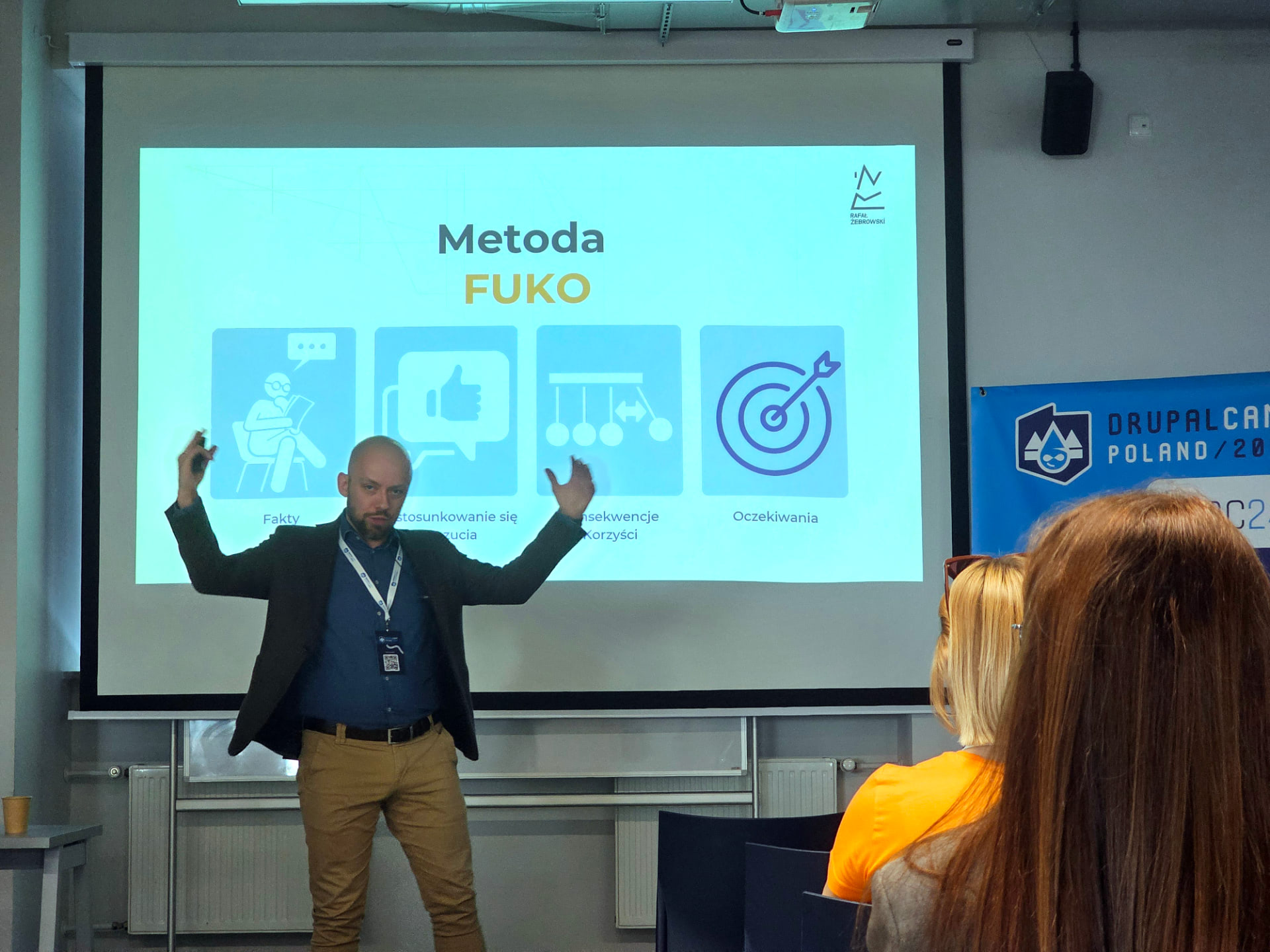
Introduction to Single Directory Components and Storybook
Since I'm already actively using SDC in new Drupal projects, I was curious to see what other interesting things I could learn. Marcin Maruszewski's talk was mainly an introduction to the whole concept, I recommend checking out the official documentation.
I was intrigued by the Storybook module, which greatly simplifies connecting Single Directory Components to Storybook using Twig writes. I'll definitely try it out soon.
And that was all of the lectures. I skipped the afterparty and went to discover Warsaw. It was definitely a stimulating weekend and if the next edition will be in some location near the Czech Republic, I will definitely go to DrupalCamp in Poland again.
